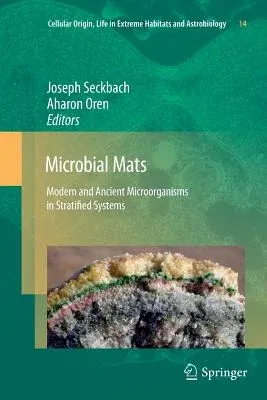Microbial Mats: Modern and Ancient Microorganisms in Stratified Systems (2010)Paperback - 2010, 5 September 2012

Qty
1
Turbo
Ships in 2 - 3 days
In Stock
Free Delivery
Cash on Delivery
15 Days
Free Returns
Secure Checkout

Part of Series
Cellular Origin, Life in Extreme Habitats and Astrobiology
Print Length
606 pages
Language
English
Publisher
Springer
Date Published
5 Sep 2012
ISBN-10
9400732414
ISBN-13
9789400732414
Description
Product Details
Book Edition:
2010
Book Format:
Paperback
Country of Origin:
NL
Date Published:
5 September 2012
Dimensions:
22.86 x
15.24 x
3.56 cm
Genre:
Ecology
ISBN-10:
9400732414
ISBN-13:
9789400732414
Language:
English
Location:
Dordrecht
Pages:
606
Publisher:
Weight:
861.82 gm